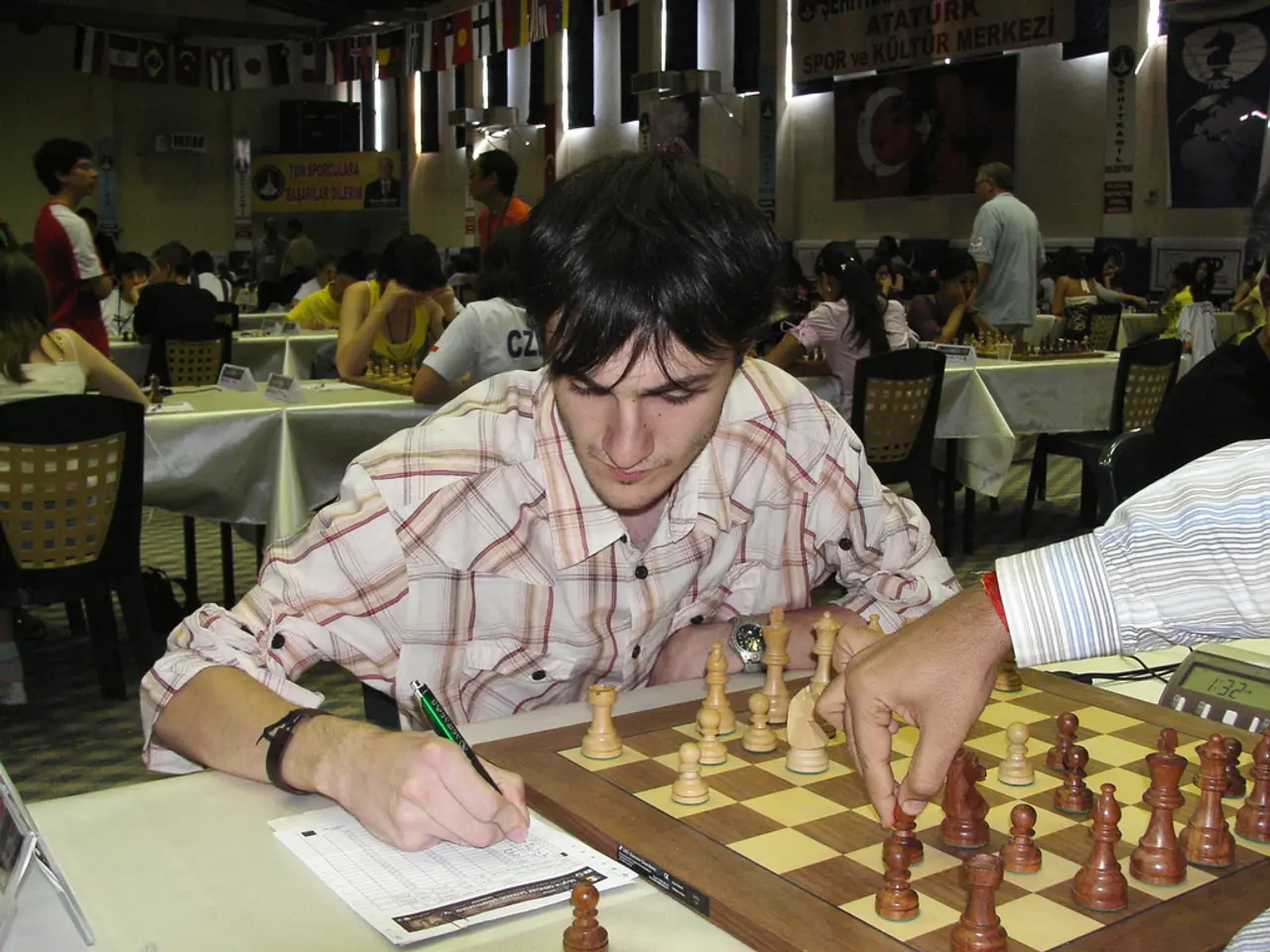Unraveling the Quantum Chess Mystery: A Challenge of Mind Over Matter in the Realm of Consciousness
In an intriguing turn of events, a human grandmaster has successfully solved a complex chess puzzle designed by Sir Roger Penrose, an emeritus professor at the Mathematical Institute of Oxford and a Nobel laureate. The Penrose Institute, a research organization that explores the intersection of physics and human consciousness, has confirmed the submission of the solution to the first puzzle via email.
The Penrose Institute, which operates branches at University College London (UCL) and Oxford University, is well-known for its investigations into the fundamental distinctions between artificial intelligence and human cognition. The chess puzzle in question is a part of this mission, designed to challenge both human players and artificial intelligence.
The Penrose chess puzzle, inspired by Penrose Tiles, presents a visual and semantic enigma to both players and AI systems. It is constructed to be legal but appears illegal, exploiting the engine's blind spots in evaluating unconventional, non-repetitive, or highly asymmetrical positions. This puzzle, while not specifically listed by chess historians, serves as a microcosm of Penrose's argument that certain problems require a kind of intuition or insight that is not reducible to computation.
The objective of the puzzle is for White to either win or force a stalemate, with insights about the thought processes of solvers being of particular interest to researchers. The puzzle is aimed at challenging artificial intelligence while remaining solvable for human players, making it an intriguing test of human intuition and strategic thinking.
The Penrose Institute has expressed appreciation for the brain stimulation provided by the puzzle and has encouraged participants to find a quiet space and reflect on their thought processes while solving it. The Institute is also releasing additional puzzles in the coming weeks, inviting both human players and AI systems to engage.
The solution to the second puzzle, taken from the final play of the World Chess Championship, has already been won. As the Penrose Institute continues to push the boundaries of artificial intelligence and human cognition, these puzzles serve as an exciting platform for exploration and debate.
The Penrose Institute, recognizing the intersection of science and health-and-wellness, encourages participants to solve the puzzles in a peaceful setting, as the process may stimulate mental health and promote mindfulness. Additionally, the Institute aims to leverage technology to analyze the thought processes of solvers in their approach to fitness-and-exercise-like mental challenges, like the Penrose chess puzzles.




